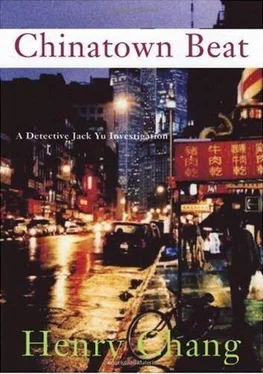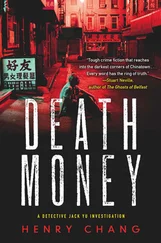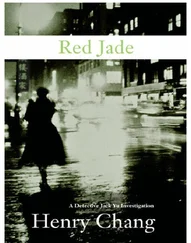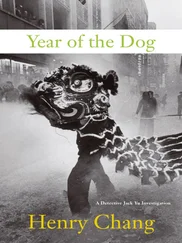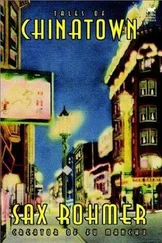Henry Chang - Chinatown Beat
Здесь есть возможность читать онлайн «Henry Chang - Chinatown Beat» весь текст электронной книги совершенно бесплатно (целиком полную версию без сокращений). В некоторых случаях можно слушать аудио, скачать через торрент в формате fb2 и присутствует краткое содержание. Жанр: Полицейский детектив, на английском языке. Описание произведения, (предисловие) а так же отзывы посетителей доступны на портале библиотеки ЛибКат.
- Название:Chinatown Beat
- Автор:
- Жанр:
- Год:неизвестен
- ISBN:нет данных
- Рейтинг книги:3 / 5. Голосов: 1
-
Избранное:Добавить в избранное
- Отзывы:
-
Ваша оценка:
- 60
- 1
- 2
- 3
- 4
- 5
Chinatown Beat: краткое содержание, описание и аннотация
Предлагаем к чтению аннотацию, описание, краткое содержание или предисловие (зависит от того, что написал сам автор книги «Chinatown Beat»). Если вы не нашли необходимую информацию о книге — напишите в комментариях, мы постараемся отыскать её.
Chinatown Beat — читать онлайн бесплатно полную книгу (весь текст) целиком
Ниже представлен текст книги, разбитый по страницам. Система сохранения места последней прочитанной страницы, позволяет с удобством читать онлайн бесплатно книгу «Chinatown Beat», без необходимости каждый раз заново искать на чём Вы остановились. Поставьте закладку, и сможете в любой момент перейти на страницу, на которой закончили чтение.
Интервал:
Закладка:
Whenever he cruised the neighborhoods, he thought of the boyhood Tat and Wing and he had shared. They were workingclass Chinatown boys, but they were also Manhattan boys, who stayed mostly in the borough and came of age trolling through the various ethnic neighborhoods: Little Italy, the Village, Soho, Tribeca, Chelsea. When they ventured into Brooklyn or Queens, it was usually on the snake that roared through the subway tunnel, always a dusty noisy death march to get anywhere.
He used to like cruising the old places, remembering the year Tat got a used Volkswagen and they bombed around town, wolfing at girls.
Manhattan was twenty-two square miles and if he took his time, he'd cover it in two hours. He needed the air, needed to clear the alcohol from his head. The perspective from the driver's seat was a bittersweet pleasure to him.
He continued east.
The Greater Chinatown Dream, the Nationalists had called it: an all-yellow district in lower Manhattan running from the Battery to Fourteenth street, river to river, east to west, by the year 2000.
Then he turned the car north and made all the green lights through loisaida, the Lower East Side, past the Welfare Projectsthe Wagner, Rutgers, Baruch, Gouverneur-federally subsidized highrises, which ran along the East River, blocs of buildings that stood out like racial fortresses. Blacks in the Smith Houses, Latinos in the Towers.
That's how the Lower East Side really was, not a melting pot but a patchwork quilt of different communities of people coexisting, sometimes with great difficulty.
Manhattan was symbolic of the rest of Gotham, the Big City, where the best walked the streets alongside the worst.
When the red light caught him, he was already past Alphabet City, in that part of the East Village where the druggie nation came to score: smoke, crack, rocks, pharmaceuticals, and a brand of Mott Street H tagged China Cat, so potent and poisonous it had sent twelve of the hardcore straight to junkie heaven in August, keeping the Ninth Precinct narcs tossing.
He powered down the window, kept the car headed north through Gramercy Park and Murray Hill, the wind buffeting his face, past the lights and shops of Midtown, the neighborhoods tonier now. He imagined the air was cleaner. Sutton Place. Beekman Place. The arriviste strongholds of the Upper East Side.
He drove through El Barrio, Spanish Harlem, the decay suddenly evident here, and crossed over above the Park at 110th, going west toward Morningside Heights and the enclave of Dominicans, a drug-dealing hub that connected New York, Connecticut, NewJersey. He paused on the Heights, long enough for another smoke, viewing the city spread out below him. The city was dying. One murder every three hours. One rape every hour and a half. One robbery every four minutes. An aggravated assault every six minutes. A motor vehicle theft every three minutes.
There was a new governor and the death penalty was coming home.
The city was dying. He saw it every time he drove through the old neighborhoods. Saw it in the blacked-out windows of abandoned graffitied tenements, in sinking potholed streets and garbagestrewn parks. He felt it every time he heard the sirens of the patrols, the ambulances, the fire trucks, day and night, relentless. He heard it in the voices of the homeless, crying, begging, threatening. Death. It touched him every time he smelled the sewage on the waterfront, the choking urine stench of the subways. Old neighborhoods that had survived the World Wars and Depression years but could not survive crack and heroin.
Dope, he figured. Dope and despair feeding the death of the darkening city.
Farther south he slashed across the blackness of Harlem, the Thirtieth Precinct sitting in the valley where the island went flat, rose, and fell again, until he came to the highway.
It was only then, cruising back down along the Harlem River Drive, that the feeling caught up to him. He didn't know if what he felt was guilt, filling his soul with sadness, breaking through the hardness in his heart, the price of growing tip an only child and without a mother's love. Perhaps, he thought, it was the finality of being alone, absolutely, without family now, after only a week, the Yu bloodline trapped, ending, with him. Perhaps, with Pa's passing, he was feeling his own mortality.
The lights across the river danced as he came south down the undulating highway, became misty as the tears flooded up behind his eyes. He blinked and the tears ran down the hotness of his cheeks, his breathing suddenly quick and heavy, a shuddering inside him.
He wiped a sleeve across his face, caught his breath as he turned on the dashboard radio, coming to the cutoff at Canal Street, the lights of Chinatown winking in the distance.
He twisted up the volume.
The rap anthem crashed out of the radio, violent and angry, and he mashed the pedal to the metal, the Fury screeching up Canal the same way he was beginning to feel.
Freedom
The China Plaza was a modern elevator building, fifteen stories of beige and gray brick with lanai balconies, shoehorned in between turn-of-the-century Chinatown tenements and the foot of the Manhattan Bridge.
Apartment H was the only red door on the eighth floor, all the others painted a deep brown that suited the tan carpet and dark Taiwanese marble lining the corridor. Red was the color of luck, but behind the door the possessions of the old man were spread out to create the image of a private bordello.
The condo unit had a small living room with a closet bedroom stuck to it and a kitchenette squeezed into the corner. Positioned on the glass end tables and etagere shelves of the living room were assorted mini-pagodas, orange trees, dragon figurines and octagonal bot kwa, I Ching charms to fend off malevolent spirits and the breath of ill fortune. A small bowl of goldfish on a stand faced northeast, a red futon couch stood beneath the picture window, a double-happiness printed loveseat filled the remaining corner.
There was a smiling Buddha Kitchen God above the refrigerator, a lucky calendar behind the front door.
From the bedroom came the cadenced voice of Chinatown radio, the Wah Kite station reporting weather, time, news. A queensized bed filled the bedroom, covered with rose-colored sheets, the faint scent of Chanel on the pillows. Japanese Vogue, Rendezvous, Hong Kong movie star magazines had fallen from the edge of the bed to the floor. A statuette of Kuan Yin, Goddess of Mercy, stood on the windowsill, just above the mirrored dresser covered with jewel-box chinoiserie. Draped on top of a leather ottoman was an Hermes scarf, vividly printed with Buddhist pilgrims, prayer wheels, a stupa, the heavenly Elements of the Universe. Prayers floating in the wind.
Mona, in silky yellow lingerie, stirred beneath the sheets, awoke, roused herself from the bed, moved like a cat across the bedroom, past the kitchenette, then parted the sliding red curtains at the balcony which looked out over Henry Street, eight flights above the noise of bridge trucks and the Kwik-Park garage below. She poured a rice bowl of water into the small pots of jade and evergreen plants that faced to the northwest: good fungseui, harmony with Nature. She had hoped that the various talismans, and her prayers to the Goddess of Mercy, could change her fate.
But her worst demon entered anyway. Uncle Four had the key, owned the apartment, came through the front door.
When she looked out on the street, she could see ghetto detritus on the blackened rooftops below, discarded mattresses and dismembered plastic dolls, tattered laundry drying across telephone wires. In the alleyways lay the carcasses of gutted refrigerators, air conditioners.
Once she saw a black man on top of a woman, doggy style.
The billboard above the China Plaza read:
Читать дальшеИнтервал:
Закладка:
Похожие книги на «Chinatown Beat»
Представляем Вашему вниманию похожие книги на «Chinatown Beat» списком для выбора. Мы отобрали схожую по названию и смыслу литературу в надежде предоставить читателям больше вариантов отыскать новые, интересные, ещё непрочитанные произведения.
Обсуждение, отзывы о книге «Chinatown Beat» и просто собственные мнения читателей. Оставьте ваши комментарии, напишите, что Вы думаете о произведении, его смысле или главных героях. Укажите что конкретно понравилось, а что нет, и почему Вы так считаете.
